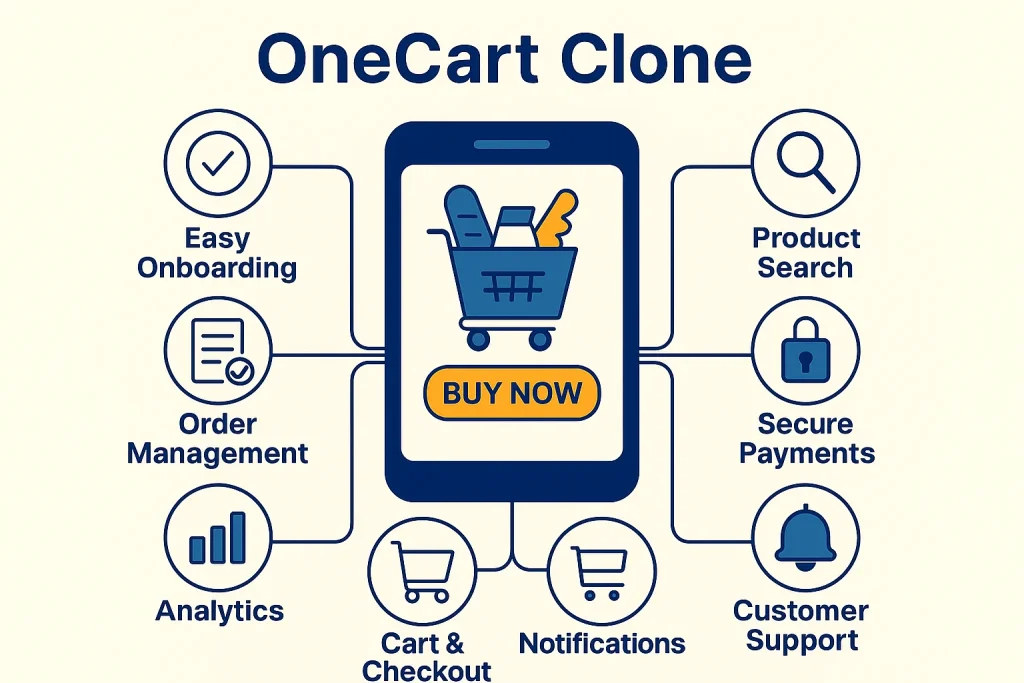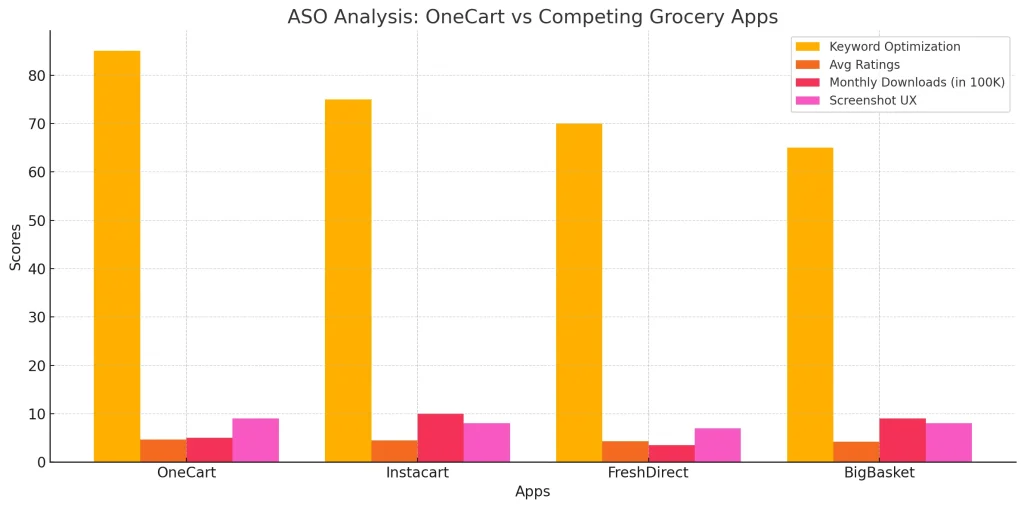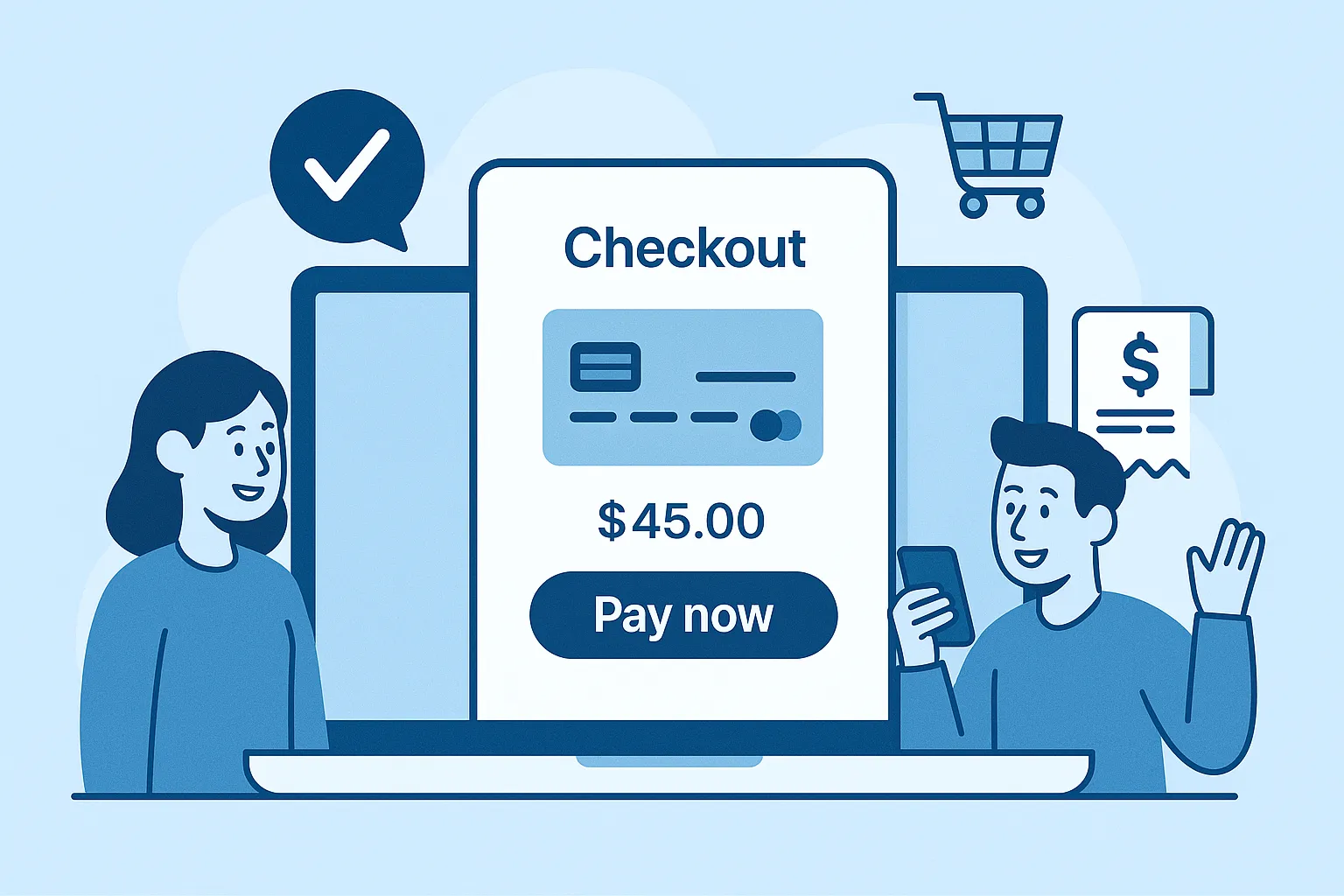You ever added three items to your cart, stared at them, and then… just closed the app? Yeah, we’ve all been there. OneCart knows that online grocery shopping isn’t just about getting the cheapest bananas—it’s about trust, convenience, and a predictable experience. That’s why OneCart doesn’t just compete with prices—it competes with attention spans and habits.
As like Statista, grocery delivery apps become our go-to saviors post-5 p.m., OneCart has emerged as a smart solution—one that quietly piggybacks on your favorite retailers without forcing you to download five other apps. Clever, right? But clever doesn’t sell itself. The real MVP here? Its marketing strategy—a blend of hustle, hyperlocalism, and some algorithmic magic.
If you’re building an app like OneCart or already in the game trying to out-cart the competition, this breakdown is your secret sauce. And hey, if you want that strategy baked into a high-performance clone app? Miracuves can help make that happen.

What Is OneCart and Why Is It Clicking?
OneCart is a multi-retailer delivery platform that lets users shop from several stores—think Woolworths, Pick n Pay, Dis-Chem, and even liquor stores—through one unified cart and checkout. It acts as a middleware app and integrates smartly with existing retail inventories.
Key USPs:
- One checkout for multiple retailers
- Real-time delivery updates
- Trained shoppers that substitute smartly
- Hyperlocal warehouse & logistics partnerships
Core Marketing Pillars of OneCart’s Strategy
1. Hyperlocal SEO: Grocery Shopping Meets Google Maps
Let’s be real: nobody searches “multi-store grocery checkout” at 6 p.m. on a Wednesday. They type “same day delivery Johannesburg” or “buy Dis-Chem products online fast.”
OneCart smartly targets geo-specific keywords, listing local retailer SKUs, and ensuring optimized Google Business Profiles for their service areas. They’ve even leveraged Google Shopping Ads for key retailers.
Takeaway for You:
Whether you’re building an app like OneCart or already operating, local SEO should be your lifeline. Think “butternut delivery Cape Town” not “grocery app”.
2. Retailer Brand Partnerships: Borrowed Trust
OneCart is like that friend who gets into the VIP lounge by knowing the DJ. By partnering with big retailers, they inherit customer loyalty without needing to build it from scratch.
And the trick? Co-branded promotions like “Get Dis-Chem delivered in 2 hours via OneCart!”—mutual benefit, shared audience.
Miracuves Insight:
If you’re cloning this model, your tech stack should support easy integration with retailer APIs, loyalty systems, and inventory databases.
3. Paid Social Campaigns with Product Triggers
Instead of “Download OneCart Now!”, they use scenario-based messaging:
- “Out of milk at 9 PM?”
- “Your meds, delivered in under 90 minutes.”
These emotionally intelligent creatives run on Instagram Stories, Facebook carousels, and TikTok mini-stories.
They tap into intent-based micro-moments, and their CTAs are laser-targeted by zip codes and shopping habits.
4. Influencer Collaborations: Moms, Fitness Coaches, and Budget Gurus
You won’t find OneCart partnering with beauty influencers. Their roster includes:
- Busy moms
- Meal prep fitness trainers
- Stay-at-home budgeters
This is genius. They’re targeting household decision-makers and repeat-purchase drivers.
And no, these aren’t huge influencers—these are niche micro-influencers with 10k–50k followers who engage deeply with their audience.
Focus less on reach, more on relevance. Even a blog post or WhatsApp status update from a trusted local voice can boost installs in specific neighborhoods.
5. App Store Optimization (ASO) That Mirrors Shopper Intent
Their app listing isn’t keyword-stuffed. It’s conversational:
“Shop from all your favorite stores in one place. Fast delivery. Trained shoppers. Safe payments.”
They use screenshots with trust signals (like “Dis-Chem Verified Partner”), and their changelogs reflect real user concerns—“Improved substitution handling”, “Bug fixes for order tracking”.
Checklist for App Clone ASO:
- Location-based keywords
- Trust visuals (badges, brand logos)
- Feature-oriented captions on screenshots
- High-volume user review responses
6. Loyalty-Driven Retargeting
OneCart doesn’t just market for installs—they market for recurring baskets.
- Abandoned cart notifications
- Weekly restock reminders
- “You bought eggs last Tuesday, need ‘em again?” nudges
Their email and push campaigns are like a digital pantry assistant.
If you’re building a OneCart alternative, Miracuves can integrate AI-driven purchase predictors that automate retargeting.
What’s Next for OneCart Features (And You)
With the rise of AI-curated shopping, voice-assisted ordering, and sustainability-first consumers, OneCart’s future might include:
- ChatGPT-style shopping assistants
- Zero-waste product filters
- Subscription baskets for essentials
Learn More: Onecart Features Breakdown for Startup Founders
If you’re dreaming of building or scaling an app in this vertical, the time is ripe. Consumers are addicted to convenience—but only when it feels personalized and consistent.

Conclusion:
OneCart’s marketing strategy isn’t rocket science—it’s smart storytelling, emotional UX, and strategic partnerships. Their secret weapon? Knowing exactly when their customers need them—and showing up right then.
At Miracuves, we help innovators launch high-performance app clones that are fast, scalable, and monetization-ready. Ready to turn your idea into reality? Let’s build together.
FAQs
What makes OneCart’s marketing strategy different?
It’s hyperlocal, emotionally intelligent, and heavily driven by retail partnerships—making it lean and cost-effective.
Can I launch a similar app in my region?
Absolutely. The model works best in urban zones with multiple retailers and high on-demand delivery needs.
How important are partnerships in this model?
Crucial. Retailer partnerships give you access to inventory, trust, and co-marketing budgets.
What budget should I plan for initial campaigns?
Start with geo-targeted ads under $1,000 to test traction. Scale what works—like OneCart did with Facebook retargeting.
Is this model sustainable without a warehouse?
Yes. OneCart uses personal shoppers and local store fulfillment, skipping the need for large warehousing.
Can Miracuves develop a OneCart-style app for me?
Of course! We specialize in high-performance grocery and delivery app clones tailored to your market and goals.








